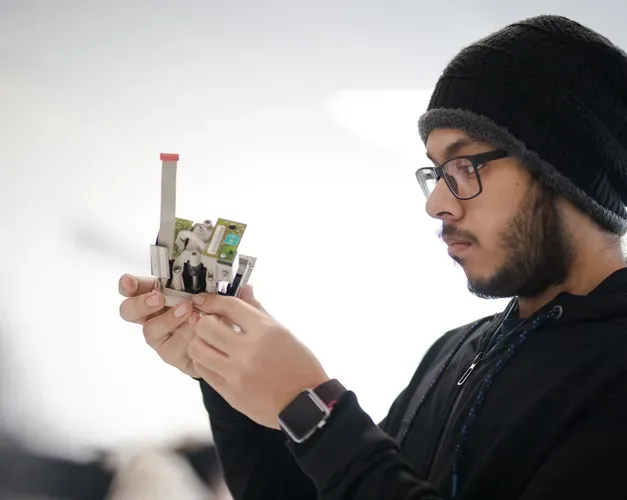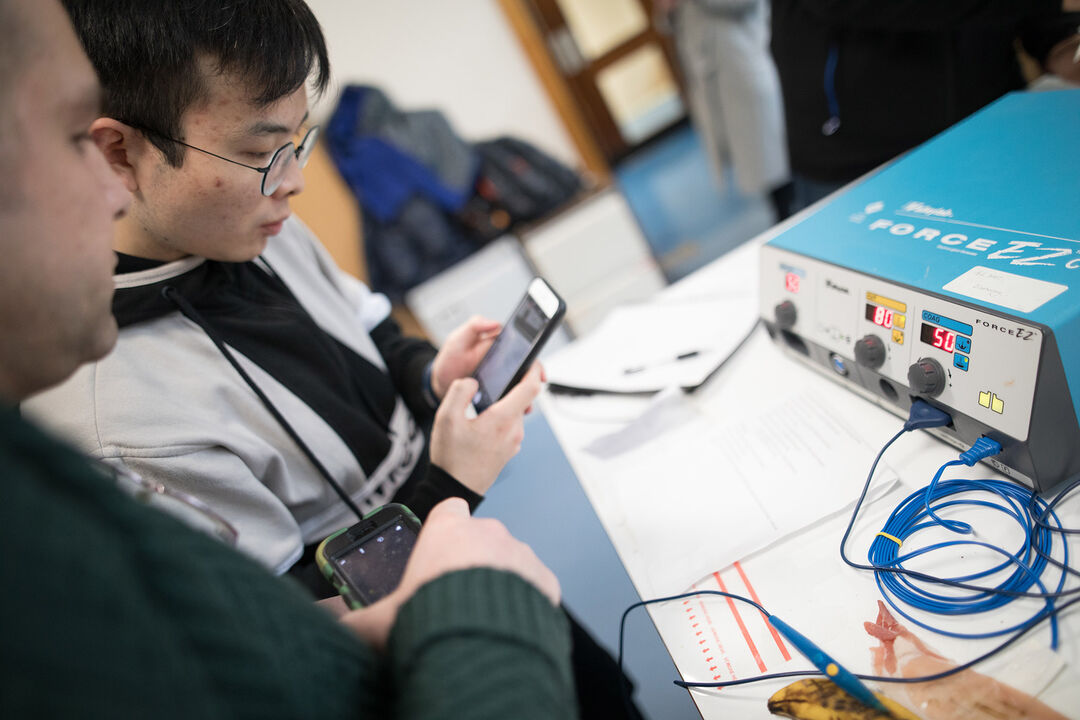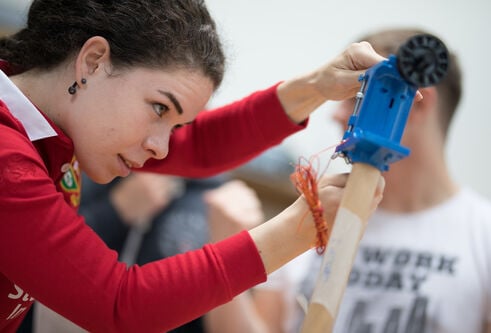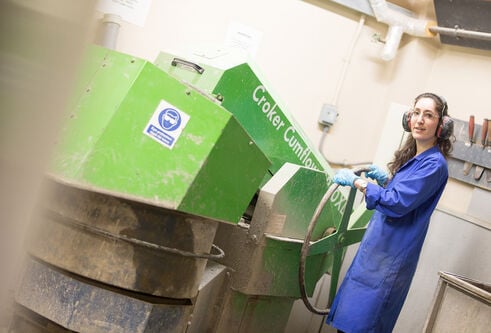Feature
What is biomedical engineering?
Learn about biomedical engineering, how it differs from other types of engineering as well as career and study options.
Published on 30 January 2024

- Biomedical engineers develop solutions to improve people’s health and well-being.
- It's an interdisciplinary field that brings together engineering and medicine.
- Biomedical engineers work in the NHS and industry.
- It has excellent job prospects with many opportunities to specialise.
- Is a human-centred discipline that applies inclusive engineering that involves key stakeholders such as patients and clinicians.
Biomedical engineers apply engineering principles to solve medical and healthcare problems. Surgical robots, pacemakers and artificial limbs are some examples of biomedical engineering innovations. They also work on medical imaging to help diagnose disease and provide treatment.
Since it brings together different disciplines, biomedical engineering has many different career options. Ultimately though, it's about changing people's lives for the better.
How is biomedical engineering different from other types of engineering?
Biomedical engineering uses knowledge and principles from a range of STEM subjects including:
- mechanical engineering
- electrical engineering
- physics
- materials science
- chemistry
- mathematics
- computer science
It combines these subjects with knowledge of human biology. This allows for the design of solutions for health care. Some examples are:
- artificial hips
- artificial organs
- prosthetic limbs
- novel drug delivery methods
- surgical robots
- patient monitors
- ultrasound scanners
What does a biomedical engineer do?
Biomedical engineering acts as a bridge between engineering and medicine.
For example, take the challenge of developing a robotic limb. A biomedical engineer is well placed to do this because of their interdisciplinary skills. The task would allow them to use their electrical engineering knowledge and creative problem solving skills. They would also understand how human anatomy and physiology would constrain the design solution.
Biomedical engineers are often employed in industry to develop and test new products. These could be large scale imaging systems like an x-ray machine. Or it could be small implantable devices like a cochlear implant.
An understanding of biology and engineering is key to their work but they might use knowledge from other fields. Biomedical engineers often specialise in a variety of sub-disciplines like those below.

Specialisms
Clinical engineers
Clinical engineers maintain equipment and medical devices and ensure these are effective and safe to use. Healthcare settings such as hospitals provide many opportunities for clinical engineers.
Rehabilitation engineers
Debilitating conditions or impairments can affect a person's daily life. Rehabilitation engineers use their engineering knowledge to develop technology to address these challenges.
For example they might create a navigational aid for people who have lost their sight. Or they might develop technology to restore muscle control after spinal cord surgery.
Medical imaging engineers
Medical imaging is also known as radiology. X-ray, CT, and PET scanners are some examples of medical imaging solutions. These technologies help healthcare professional visualise the inside of the human body. Medical imaging engineers are responsible for operating this equipment. They might maintain, repair, and install it too.

Is biomedical engineering right for me?
Biomedical engineering challenges you to solve problems by applying human-centred design strategies.
You’ll need a strong interest in mathematics and science to study biomedical engineering.
It is a diverse field that enables you to work with and help a wide community of stakeholders.
As a biomedical engineer, you'll get to:
- combine engineering concepts with knowledge of the human body to design solutions
- look behind the scenes and learn about clinical processes
- work with other specialists
- work across disciplines
- use your communication skills to interpret the knowledge of other professionals
- improve the health and well-being of people by providing solutions to health-care and well-being issues
This makes for a very rewarding career!
Careers in biomedical engineering
In the UK, the Core Med Tech sector contains businesses involved in the discovery, development and marketing of and medical devices. Employment in this sector grew by 13,100 between 2011 to 2020, a 14% increase.
This growth is partly driven by innovations in science and technology. There is also a need to solve the problems caused by an ageing population and develop treatments for chronic conditions. Biomedical engineering plays a big role in addressing these challenges.
Sectors
Broadly speaking, biomedical engineers in the UK work in three main areas.
NHS
The NHS offers many biomedical engineering opportunities. In medical engineering this can involve:
- acceptance testing of new equipment
- introducing equipment into service
- addressing patient safety issues
Professionals often transition from medical engineering into device risk management and governance. This field specialises in managing equipment.
There are many opportunities within the NHS. You might need to be flexible about your location when undertaking initial training and if looking to progress to a higher salary.
Industry
Biomedical engineering roles within the private sector often focus on the research and manufacture of new products. These could be engineering roles within the design and development process. Another industry career path is consultancy, where you can advise organisations on equipment and processes.
Research
Biomedical engineers can work in universities and research units. Here they often supervise labs and equipment. They also collaborate on research with other disciplines such as medicine and nursing. They might work on clinical trials to conduct research into new technology. They might also test products to ensure patient safety.
Examples
Making a difference to the diagnosis and treatment of cancer
Funding to develop innovative surgical aid
Many biomedical engineers will often study at postgraduate level before they enter the NHS or private sector. This allows them to specialise and maximises their employment opportunities.
At the University of Dundee, we offer opportunities to study at both undergraduate and postgraduate level.
Related content
Feature
Find out what a mechanical engineer does and learn about career options.

Feature
We take a look at ten varied jobs which you can do with a degree in mathematics.

Feature
Civil engineering plays a crucial role in shaping our world. It encompasses the design, construction, and maintenance of essential infrastructure projects.
